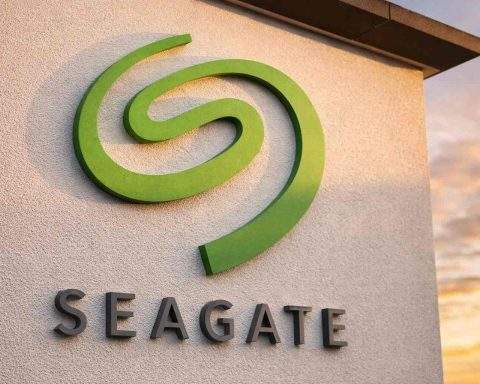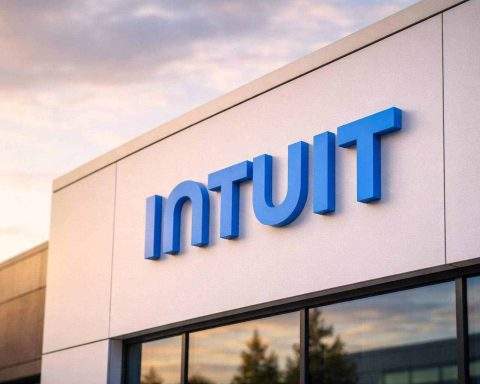Visa Inc (NYSE: V) spent Wednesday trading around $335 per share, as investors digested a new stablecoin settlement partnership with Aquanow, a reaffirmed Buy rating and $410 price target from Jefferies, and a flurry of institutional and political buying disclosures.1
Visa stock today: price action and key metrics
As of midday on November 26, 2025, Visa’s investor relations site showed the stock at about $335.0–$335.1, up roughly 0.15% on the day, with an intraday range near $333.06–$335.41.1
Key snapshot for Visa Inc stock today:
- Last trade (intraday): ~$335
- Previous close: $334.531
- 52‑week range: $299.00 – $375.511
- Distance to extremes:
- ~10.8% below the 52‑week high
- ~12.0% above the 52‑week low2
- Market capitalization: about $640–642 billion, ranking Visa among the world’s top 20 listed companies by value.3
- Valuation: P/E ~32.8, PEG ~1.95, with a beta around 0.87, reflecting a profitable, moderately defensive large‑cap growth profile.4
Price data are delayed about 20 minutes, but the picture is clear: Visa stock is consolidating in the mid‑$330s, roughly flat on the day but still modestly higher year‑on‑year, with a 1‑year market‑cap gain around 9–10%.StockAnalysis
Visa expands stablecoin settlement with Aquanow across CEMEA
The biggest corporate headline for Visa Inc today is its new stablecoin settlement partnership with Aquanow, aimed at banks and payment partners across Central and Eastern Europe, the Middle East and Africa (CEMEA).
According to Visa and Aquanow, the integration will let issuers and acquirers settle transactions using approved stablecoins such as USDC, leveraging Aquanow’s digital‑asset infrastructure on top of Visa’s global payment network.5
Key points from today’s announcement:
- Visa is expanding its stablecoin settlement capabilities beyond earlier pilots, specifically targeting the CEMEA region.6
- The partnership aims to reduce settlement costs, operational friction and delays, by allowing 365‑day settlement in stablecoins for partner institutions.5
- Visa highlights growing demand from financial institutions for faster, cheaper cross‑border transactions, positioning stablecoins as a digital back‑end rail rather than just a consumer speculative asset.5
- Visa notes that its earlier stablecoin programs already reached an annualized run‑rate above $2.5 billion in volume, demonstrating real traction rather than a tiny experiment.5
This move builds on a string of crypto- and stablecoin‑related initiatives from Visa in 2024–2025, including:
- Testing stablecoins for cross‑border funding of business payments, allowing firms to prefund less cash in foreign accounts.7
- Pilots using Visa Direct stablecoin payouts to speed up earnings transfers for creators and gig workers, announced earlier this month.8
For investors, the Aquanow deal reinforces a key part of the Visa stock story: management wants the company to own the rails of digital money movement, whether that’s traditional card settlement, account‑to‑account transfers, or blockchain‑based payments — rather than being disrupted by them.
Jefferies reiterates Buy with $410 target
On the analyst front, Jefferies reiterated its Buy rating on Visa today, maintaining a $410 price target in a fresh research note.9
That target implies more than 20% upside from the current share price in the mid‑$330s.
Jefferies’ stance is broadly in line with wider Wall Street sentiment:
- MarketBeat and other aggregators show an overall “Moderate Buy” to “Strong Buy” consensus on Visa, with dozens of Buy/Overweight ratings and very few, if any, Sell calls.MarketBeat+2MarketBeat+2
- Average 12‑month price targets cluster around $395–$400, with some houses — including Jefferies — pushing up toward $410–$425.8
In other words, today’s Jefferies note doesn’t change the consensus, but it confirms that major sell‑side firms still see Visa as a premium compounder with double‑digit earnings growth and a long runway in digital payments.
Institutional investors shuffle their Visa positions
A series of SEC 13F‑based alerts published today show that large investors have been actively adjusting their stakes in Visa. All of the following articles are dated November 26, 2025 and reference second‑quarter positions:
Funds trimming positions
- Country Trust Bank cut its Visa stake by 5.2%, selling 13,824 shares and ending Q2 with 250,826 shares worth about $89.06 million. Visa still accounts for roughly 2% of its portfolio and remains its 10th‑largest position.4
- Northwest & Ethical Investments L.P. lowered its holdings by 7.3% to 114,824 shares, valued at about $40.77 million, making Visa roughly 1% of its portfolio and its 13th‑largest holding.10
- Russell Investments Group Ltd. reduced its stake by 4.3% to 1,721,493 shares, or about 0.09% of Visa’s shares outstanding, worth around $609.8 million.11
- RiverPark Advisors LLC cut its position by 23.1% to 10,061 shares (~$3.57 million), though Visa still represents about 2.2% of the firm’s portfolio and remains its 12th‑largest holding.12
Funds adding or increasing Visa exposure
- Te Ahumairangi Investment Management Ltd boosted its Visa stake by 14.1%, buying 3,840 shares to reach 31,121 shares worth about $11.05 million, roughly 2% of its portfolio and its 12th‑largest holding.13
- Maia Wealth LLC raised its Visa holdings by 8.6% to 11,123 shares, valued near $3.95 million.14
- Choreo LLC increased its position by 11.6% to 82,299 shares, worth about $29.2 million.15
Across these filings, MarketBeat notes that around 82% of Visa’s shares are held by institutional investors and hedge funds, underscoring the stock’s status as a core holding in many global equity portfolios.10
Congressional buying, insider selling and lobbying activity
A U.S. Representative buys Visa
Adding a political twist, Rep. Lisa C. McClain (R‑Michigan) reported a Visa stock purchase in her retirement account:
- She disclosed buying between $1,001 and $15,000 worth of Visa shares on October 30, 2025, in a “Charles Schwab 401(k)” account, as reported in a November 26 MarketBeat summary of congressional trades.16
While the dollar amount is small relative to Visa’s scale, congressional trading in mega‑cap names like Visa is often tracked closely by retail investors and alternative‑data providers.
Insiders take profits
Several of today’s MarketBeat filings also reiterate recent insider selling:
- CEO Ryan McInerney sold 10,485 shares earlier in November for roughly $3.6 million.
- Director Lloyd Carney sold 900 shares at an average price around $336–$341.4
Combined, insiders have sold about 24,000 shares (just over $8 million) over the past quarter, and insiders own roughly 0.13% of the company — typical for a widely held mega‑cap but a reminder that most of the float is in institutional hands.4
$2.3 million in lobbying spend disclosed
Separately, alternative‑data platform Quiver Quantitative reported today that Visa disclosed $2.3 million in U.S. lobbying expenditures for Q2 2025.17
According to the disclosure summary, Visa lobbied on a broad mix of issues, including:
- Digital payments and the “cost of acceptance”, including interchange fees
- Payment card security, fraud, ID theft, and cybersecurity
- Stablecoin regulation and specific bills like the GENIUS Act, the STABLE Act, and the Credit Card Competition Act
- Privacy and data use, AI, and cross‑border trade and sanctions17
Quiver also notes that members of the U.S. Congress traded Visa stock 16 times in the past six months (5 buys, 11 sells), highlighting how prominently Visa features in political and regulatory conversations.17
All of this sits against the backdrop of Visa’s multi‑billion‑dollar disputes over merchant fees. Earlier this month, Reuters reported that Visa and Mastercard agreed to a revised settlement worth up to $38 billion to resolve long‑running U.S. merchant litigation over alleged excessive swipe fees, though some merchant groups remain opposed.7
For investors, today’s lobbying update underscores that regulatory and political risk remains one of the key overhangs on the Visa investment case — even as its fundamental business continues to perform well.
Earnings backdrop: resilient spending and a higher dividend
Today’s stock and news flow is anchored in the strong fiscal Q4 2025 results Visa reported on October 28:
- Net revenue rose 12% year‑on‑year to $10.72 billion, modestly ahead of analysts’ expectations.18
- Adjusted EPS came in at $2.98, slightly beating the $2.97 consensus.18
- Global payments volume on Visa’s network increased 9%, with broad‑based strength across categories such as travel, fuel and retail, according to management commentary.18
- Cross‑border volumes grew around 12%, still solid but at a slower pace than previous quarters, which some analysts flagged as a moderating tailwind.18
Crucially for income‑focused investors, Visa’s board approved a 14% dividend increase:
- Quarterly dividend raised to $0.67 per share, implying an annualized $2.68, for a yield near 0.8% at current prices.19
While the yield is low, the dividend growth rate is high, and payout ratios remain comfortably below 30%, giving Visa plenty of room to keep increasing dividends over time.
How today’s news fits into the Visa stock story
Putting it all together, here’s what today, November 26, 2025 means for Visa Inc stock:
- Strategic direction
- The Aquanow stablecoin partnership shows Visa doubling down on blockchain‑based settlement rails in real, revenue‑adjacent use cases (cross‑border settlement for banks and processors), rather than just marketing experiments.5
- Fundamentals remain strong
- Recent earnings confirmed high‑margin, double‑digit net revenue growth, strong payment volumes, and robust profitability, even as cross‑border growth cools from extremely strong post‑pandemic levels.18
- Valuation is rich but not extreme for a payments franchise
- At ~33x trailing earnings and around 9.5% market‑cap growth over 12 months, Visa trades at a premium to the broader market but in line with other dominant global networks.3
- Big money is active, but not abandoning the name
- Today’s 13F alerts show a mix of trimming and buying among institutional holders, with no evidence of a mass exodus. Overall institutional ownership remains very high (~82%).10
- Wall Street and alternative data remain bullish
- Jefferies’ reaffirmed $410 Buy target, alongside a broad consensus of Buy/Overweight ratings and average targets around $400, signal that most analysts still see Visa as a long‑term compounder rather than a mature, ex‑growth giant.9
- Regulatory risk is not going away
- The new $2.3 million lobbying disclosure and ongoing merchant‑fee litigation context make clear that policymakers are heavily engaged with Visa’s business model. That risk is manageable so far, but structurally embedded in the stock.17
For long‑term investors, today’s developments reinforce the existing narrative: Visa remains a dominant payments network with strong cash flows, active innovation in digital and crypto rails, and persistent regulatory scrutiny, all wrapped in a premium valuation that assumes continued execution.
As always, this article is for informational purposes only and does not constitute financial advice. Investors should consider their own objectives, risk tolerance and time horizon before making any decision about Visa Inc stock.






